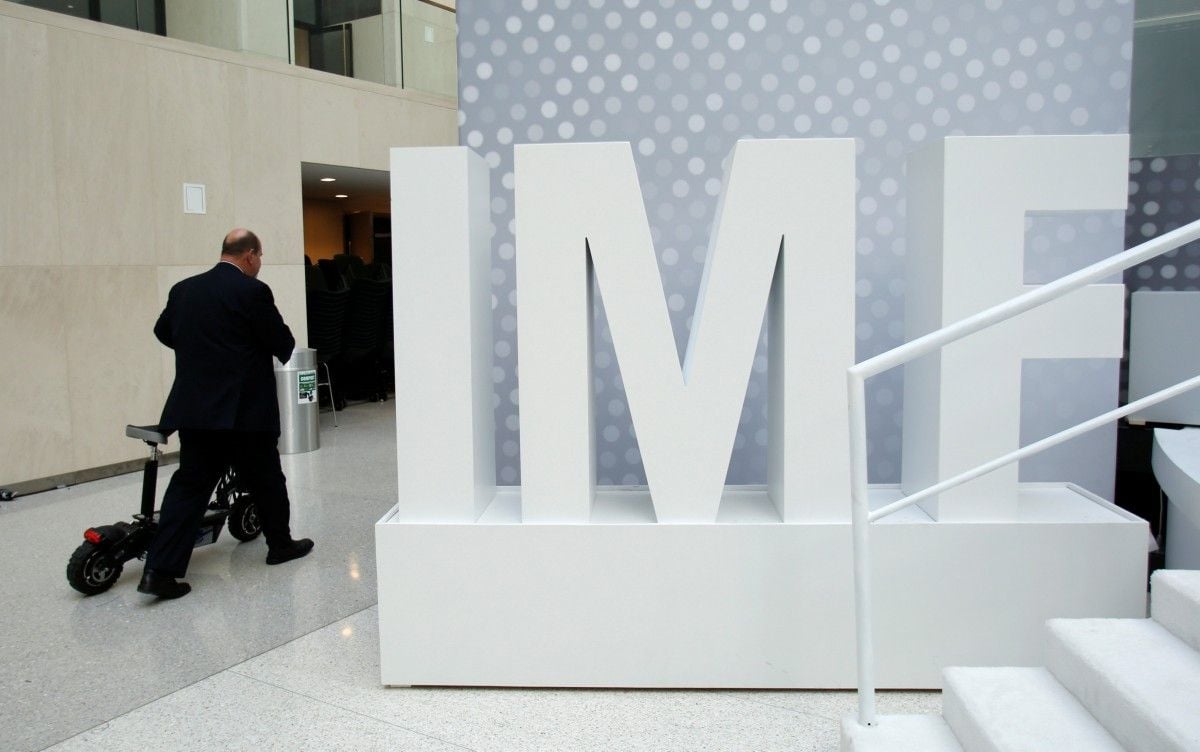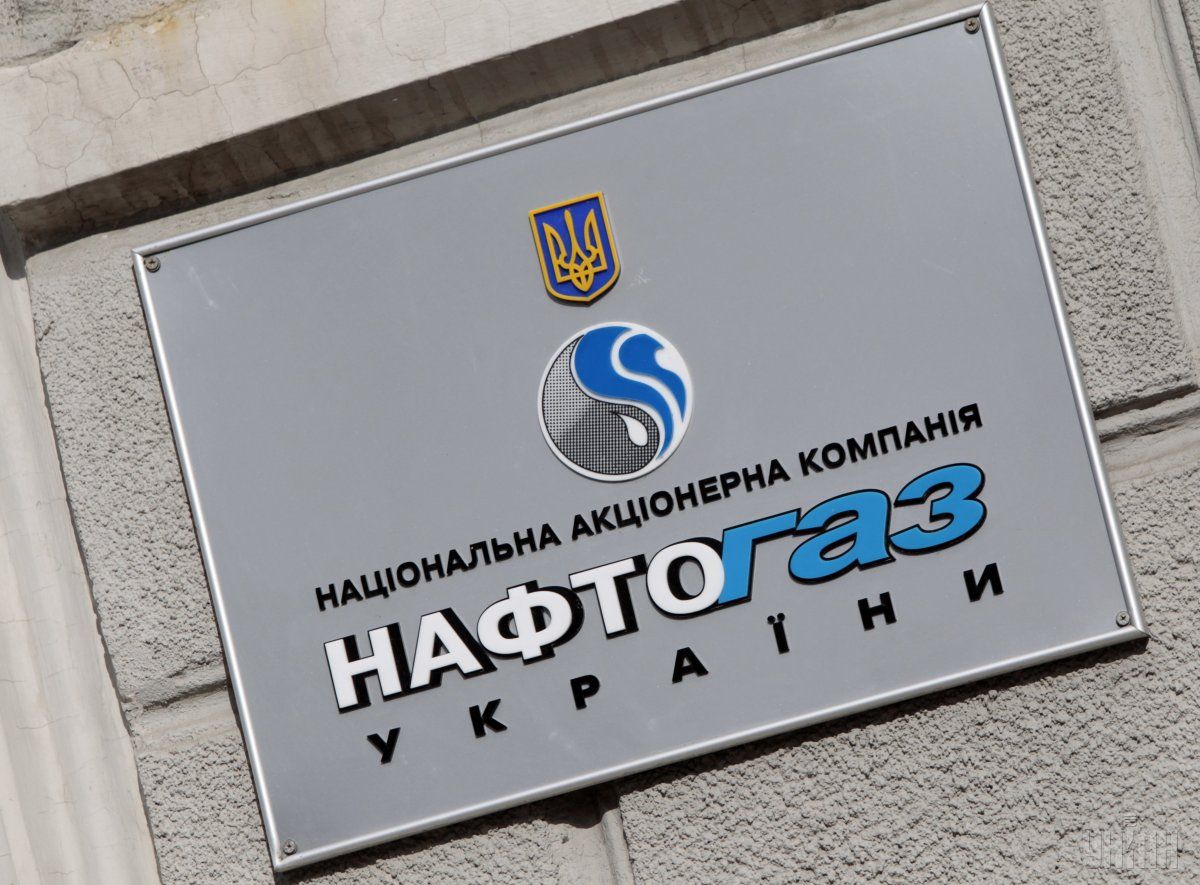
Week’s balance: success of Ukrainian Eurobonds, scandal in Naftogaz, and hitch with pension reform
For the first time since the Revolution of Dignity Ukraine successfully borrowed $3 billion on the foreign market for 15 years, the Cabinet presented a draft budget 2018 in parliament which has by far failed to begin the final stage of the debate on pension reform, while the last remaining independent members of the Naftogaz supervisory board announced their intention to resign claiming that the Ukrainian government was “derailing” the gas holding’s reform - these are key economic news of the outgoing week.
The key economic event for Ukraine in the past week and in the country’s recent history was the attraction of $3 billion by placing 15-year Eurobonds at a 7.375 rate. President Poroshenko proudly announced the deal’s completion in the late hours of Monday.
"Ukraine entered the borrowing market raising $3 billion in record time. Until this day, our country has never received such a sum for a period of 15 years," the head of state wrote on Facebook, stressing the fact that this is a testament to the country’s extremely positive assessment by investors.
It is important that the transaction has become Ukraine's first independent entry to foreign capital markets since the Revolution of Dignity, without the guarantees of the United States, as it was in 2014-2016, and without political agreements - as opposed to 2013 when Yanukovych received from the Russian side the so-called "Yanukovych loan". Besides, along with receiving the funds, which is expected on September 25, the government will redeem two Eurobond issues of 2015 totaling $1.6 billion, reducing the debt burden for 2019-2020.
According to the Ministry of Finance, the new issue may be rated at least at "B-" by Standard & Poor's and Fitch, while the difference between the volume of funds received and the cost of redeeming previously issued bonds will be used to finance the general fund of the state budget.
"I was amazed by the interest in Ukraine as an issuer. The peak volume of applications in the book amounted to $9.5 billion from about 350 investors. The final location took place among about 300 investors, of which 78% are asset managers, 15% - investment funds. 46% of the location are investors from the United States, 36% - from UK, 16% - continental Europe," said Deputy Finance Minister Yuriy Butsa.
Experts called the placement successful, which at the same time does not relieve Ukraine from the need to continue the cooperation program with the country’s key creditor, the International Monetary Fund. "The total amount of payments on external debt of the public sector in 2018-2019 will be more than $10 billion, including $7.6 billion to be paid from the budget. In addition, in the next two years, internal government bonds worth $3 billion will be repaid. In order to cope with increasing payments during the pre-election period, the authorities need to remain in the IMF program," says Olena Belan, chief economist at Dragon Capital.
Ukraine’s creditors have also expressed concerns over the country’s successful entry into foreign markets, citing fears of a slower pace of reform.
Francis Malige, EBRD’s Managing Director for Eastern Europe and the Caucasus, reminded that “the winter is coming,” which may last up to 18 months, that is, up to the elections, if the authorities slow down the reform and switch on to their campaigns.
IMF battles with budget and pensions

The mission of the IMF’s European Department whose arrival in Ukraine was expected on September 19, has not yet come. The mission is aimed at contributing to the fourth revision of the Extended Fund Facility. However, the new date has not yet been set.
A week earlier, IMF spox Gerry Rice at his traditional briefing in Washington confirmed that the mission could arrive in the near future, but the exact date has not yet been determined.
The government is counting on a positive review of the EFF and the provision of another loan tranche as early as this year.
"The issue that depends directly on the Cabinet of Ministers is the budget. Here we feel completely confident because we have drafted a budget that is consistent with the goals of the [EFF] program," said Oksana Markarova, First Deputy Finance Minister.
It would seem that Ukraine has something to brag about before its creditors. On Monday, the Verkhovna Rada published the text of the draft state budget 2018, approved by the Cabinet of Ministers, implying an increase in revenues by 13.8%, to UAH 877 billion, expenditures - by 12.7%, to UAH 948 billion, while the deficit will decrease to 2.4% of GDP from 3% this year.
Presenting the draft budget in Parliament, Finance Minister Oleksandr Danyliuk called it realistic, balanced and forward-looking.
"We formed the budget not based on expenditures and wishes but from revenues and capacities. Therefore all expenses are confirmed by revenues. Budget revenues actually reflect what the national economy can provide for in 2018 without raising taxes. The government is unequivocally against raising taxes, as we are interested in developing the economy," he said.
At the same time, representative of the parliament’s budget committee Vasyl Omelchenko noted that the deputies had a number of reservations to the draft.
He criticized government initiatives on transferring to local budgets the financing of housing and utility benefits, significant expenses for road repairs of certain territories while there is a centralized state fund for that purpose, the continued experiment at customs, subventions cuts to local budgets for primary healthcare before the adoption of healthcare reform. In addition, the deputy expressed his concern over the adequacy of funds for the education reform and doubted if target revenues on excises before the adoption of changes in legislation were realistic enough.
Other parliamentarians also criticized the government’s draft. Mo from Samopomich Tetiana Ostrikova noted that there are questions to macro-targets, since the government did not provide their justification. She also stated that the project did not comply with the Budget Code, since it was built on legislation that had not yet entered into force. "The government should now explain to us the hryvnia devaluation from UAH 26 to UAH 30 per dollar. This figure raises questions among parliamentarians and panic among citizens," she said.
Apparently, the budget process promises to be traditionally protracted and tense, while, besides the budget, creditors have a number of other questions to the Ukrainian authorities. A week earlier the IMF said that Ukraine, in order to see a successful completion of the fourth EFF revision and receive the fifth loan tranche, should pass pension reform, accelerate privatization, and show concrete results in the fight against corruption.
Meanwhile, the pension reform and the increase in pensions from October 1, already announced by government, are on the brink of failure. On Thursday, September 21, people's deputies ignored the proposal of Parliament Speaker Andriy Parubiy to work without breaks until the completion of consideration of judicial and pension reforms. Personal attendance of Prime Minister Volodymyr Groysman did not help, either. Speaking in parliament, he shifted on deputies the responsibility for a failure to fulfill promises to raise pensions.
"Today, the Ukrainian parliament had every opportunity to decide on a new pension system that would allow pensioners to get high pensions. Pensioners have been waiting for this for years. But today it did not happen. We are ready for this [recalculation]. But if the decision continues to be dragged down by parliament, we will not be able to make this happen it in October. Therefore, I call on the deputies to unite and take a decision at the next plenary week - in early October. We will do our work and 9 million pensioners will receive higher pensions. I call on everyone to get prepared and make a decision. "
Naftogaz in anticipation of reform

At week-start the press service of the National Oil and Gas Holding Naftogaz of Ukraine reported that the last remaining independent members of the supervisory board - Paul Warwick and Marcus Richards - announced their intention to resign, citing the curtailment of reform by the Ukrainian government and its interference in the company’s operations.
Increasing “political meddling” is becoming “increasingly evident and, unfortunately, the norm,” the said members of the supervisory board claimed in a letter, according to the company press service.
Earlier, in the middle of April, the representative of the state in the supervisory board, Yulia Kovaliv, also resigned, followed by another board member Charles Proctor who made the decision earlier in September. All of this is happening ahead of the heating season and on the eve of the important litigation between Ukraine and Russian Gazprom, where Naftogaz is trying to recover losses via the International Tribunal in The Hague (The Netherlands) totaling $5 billion as a result of Russia's illegal seizure of assets in Crimea and another $12 billion - on a gas transit lawsuit with the Stockholm Arbitration Chamber.
Commenting on the latest developments, Naftogaz CEO Andriy Kobolev spoke about the risks to the holding’s further obtaining of cheap credit resources from international banks, risks to the preservation of gas transit through Ukraine after the current contract with Gazprom expires, and the threat of non-fulfillment of plans to increase own gas extraction by 2020.
"Without the supervisory board - the only body that can make such decisions as the approval of certain transactions, for example, to the tune of over UAH 0.5 billion - now it's all shifting toward the Cabinet," he said, adding that it will be difficult for the government to understand all subtleties of operations of Naftogaz subsidiaries and their transactions.
Kobolev stressed that the government should transfer to the Supervisory Board the authority to approve the most important documents and appoint top managers, so that the board’s new composition could effectively perform its functions.
Kobolev's concerns about the slowing down of the reform of the state energy holding are shared by the creditors.
“The EBRD regrets that it came to a situation, where the independent board members of NAK Naftogaz of Ukraine felt they had no choice but to resign. We would like to thank them for the dedication, professionalism, and competence with which they engaged in the process of Naftogaz transformation,” the statement read.
The creditor noted that “good governance has enabled the company to return to profitability and eliminate significant opportunities for corruption,” adding that the “second stage of Naftogaz transformation is long overdue.”
It is about the unbundling of the monopoly in line with the model which has been discussed since 2014. However, the Ministry of Energy as the profile ministry and the Ministry of Economic Development as the holding’s main curator have different visions of the process.
The reaction of the Ukrainian government to the scandal in Naftogaz was voiced by Volodymyr Groysman who assured that the reform would continue and accelerate. The prime minister also promised to renew the composition of the holding's supervisory board publicly and jointly with international partners.
Economy growth and industrial output

Last week, the State Statistics Service slightly worsened the assessment of Ukraine’s GDP growth in the second quarter of this year to 2.3% in annual terms from 2.4% in August. There came no negative reaction to the adjustment of indices from experts and Ukrainian authorities.
Speaking at a financial forum, President Poroshenko said that Ukraine not only had survived and avoided default, it also laid the foundation for sustainable growth. He stressed that worst times in the economy have been overcome, which is confirmed by GDP growth for six consecutive quarters after 14 quarters of the drop.
The head of state’s views are echoed by the National Bank, which estimates that the current dynamics in the economy testifies to the increased likelihood that GDP growth will exceed the forecasted rate set by the regulator at 1.6%, however a slight slowdown in economic growth will continue in the second half of the year.
The minister of finance says he expects Ukraine's GDP growth in 2018-2019 by 6-7%, thanks to the inflow of foreign investment to Ukraine as a result of successful privatization.
"I talked to more than a hundred investors and felt that the tsunami is coming. In a good sense that is. There is interest in Ukraine, and we should embrace this opportunity," he said.
The optimism of the Ukrainian authorities is confirmed by fresh stats coming from the industry. Industrial output in Ukraine in August 2017 increased by 1.2% in annual terms after falling by 2.6% a month earlier.
The most significant growth was recorded in the production of computers, electronic and optical products - by 62.7%, and chemical industry - by 33%. At the same time, the decline in the extraction of hard and brown coal continues, with the volumes decreased by 24.8%, as well as in the production of coke and refined products - a decline of 13.6%.
Next week, although not a plenary one in parliament, promises to be no less interesting: we will see more expert discussions over the state budget 2018, as well as on pension reform and other government initiatives as part of the homework assignment set by the IMF.
It may well be that President Petro Poroshenko will finally submit to Parliament a nomination for the post of NBU governor, as president’s representative in the Verkhovna Rada Iryna Lutsenko earlier announced a deadline for the move for late September.
Olha Hordienko

